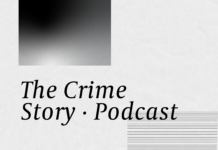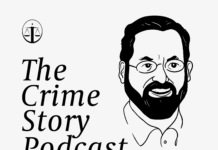Finding New Appreciation: An Interview with Josh Kezer
In 1994, 19-year-old Josh Kezer was convicted for a 1992 murder, though no physical evidence linked him to the crime scene and alibi witnesses placed him hundreds of miles away. He spent 16 years in prison before his conviction was overturned and he was released. Today, Kezer lives half the year in Columbia, Missouri, and the other half in Southeast Asia, where he studies martial arts and combats the sex trafficking industry. I reached out to him to ask how his own wrongful conviction and his connection to sexual assault survivors are helping him find peace during quarantine.
Amanda Knox
How are you doing?
Josh Kezer
I’m alright. I’ve had some moments of clarity through this quarantine. And I’ve been out now for a little over 11 years, being exonerated and released in February 2009. And I’m sure that you’ve experienced this. You get far away from your exoneration and you can tend to forget some things. And I mean, it’s like anything in life. But I was sitting outside, on my back patio and had a fire going and drinking some cold beer and had some good music on and was just taking the time to just think and meditate and pray and give thanks and appreciation for all the things that God’s given me. And in that moment it occurred to me that this quarantine life isn’t so bad. And when that occurred to me I had this incredible moment where I was completely thankful again for my freedom. Everybody who thinks quarantine’s like being in prison, they need to wake up. But because I’ve been in this place before where the government has told me, literally, you can’t go anywhere. Stay put. And there was no choice. There was no essentials that I could leave prison to attend. There was no grocery store or pharmacy, firearms store, hospital. It was the prison compound. And I had this moment of just gratitude and thankfulness and like, “Yeah, this isn’t so bad.” Because what I didn’t have in prison, the firepit. I didn’t have cold beer. I didn’t have a pool table. I didn’t have an iPad. I didn’t have social media. I didn’t have a phone. I didn’t have a television. I didn’t have Netflix, Facebook, Twitter. I had none of them things. That’s what I had in prison. I had 800 pushups a day. I had 500 air squats a day. I had Solitaire. I had books. I had letters I would write. Now I can jump on an email and contact anybody around the world within moments. Then I had to wait weeks to hear back from someone. It’s not that bad, Amanda.
Amanda Knox
Oh, sure. I mean, that’s one of the huge blessings that I especially have right now, is I have my husband next to me, and I have my cat and I’m in my home. That’s one of those blessings that you don’t get in prison, where that person who’s trapped in a room with you may not have your best interests at heart. One thing that I think is, maybe, is the most similar to prison in this quarantine experience is the uncertainty of when and how it will end. Does that seem fair?
Josh Kezer
I think that does seem fair. I could argue that uncertainty applies in every circumstance of life. I’ve heard it said multiple times that it could happen to anybody. It can happen to anyone. I’ve been saying that for years. I’ve been saying that for years regarding false imprisonment. I’ve been saying that for years regarding sex trafficking, drug overdose, injustice and inequality. But the difference is, those things haven’t been covered in a way to communicate to people appropriately just how much they can touch them. Whereas this has. COVID-19 has. And I feel like it’s an opportunity, this uncertainty, this belief that anybody can be touched, it’s an opportunity, actually. I see the positive in it, if you will, for people to start adapting how they feel about other things, instead of just getting caught up in their feelings about this.
Amanda Knox
Yeah, that’s one of those cognitive bias traits that all human beings have. There’s this sort of mechanism of comforting delusion that we all experience naturally, where we feel immune to something until it hits us up close.
Josh Kezer
That’s a good term: comforting delusion. Because that’s the truth, Amanda. It is a comforting delusion. The thought that these things can’t happen to us. There’s another key to getting through this as well, of understanding that we are alive and that we should enjoy life. I think a lot of people are forgetting that in this process, Amanda.
Amanda Knox
Yeah, where you go, “Okay, what are you focusing on? Are you focusing on the things you can do or the things you can’t do?” I think a lot of things that exonerees have in common is an ability to imagine the best version of yourself in a number of different scenarios.
Josh Kezer
Oh, absolutely. I always say when I’m thinking right, or when I’m in my right frame of mind, I, you know, I’m thankful. When exonerees are in the right frame of mind, we remember we’ve been through some things. And we didn’t just survive those things. I don’t like the word “survivor.” For me, at least, it suggests a little bit of weakness. For me as a Christian, I don’t feel like I just survived anything. I don’t even feel like I overcame something. I feel like I’m more than an overcomer. And what I mean by that is Constantinople, Alexandria, conquerors. When they overtook something, they didn’t just crush the city and march through the city and leave the city in ashes. They conquered the city, marched through the city, owned the city, renamed the city, made the city their own. And when I went through my experience, I turned their attempt at destruction, into my testimony, and I owned it, I renamed it. Mine, not theirs. I believe we’re voices that can help other people get through something like this. You know, psychiatrists will ask us, “Are you isolated?” And that doesn’t have to be a negative, Amanda. My best moments in prison were moments when I realized I wasn’t the only one in that cell, that God was with me. And I wasn’t alone on that patio when I had that, that moment. God was with me. And I was free. The bottom line: free.
Amanda Knox
It sounds like you would like Robert Frost. He’s a bit of an isolationist who enjoys walks alone in the woods and being in awe of nature and existence.
Josh Kezer
Absolutely. I’m like that. There were times in Thailand where, you know, I would just go to the beach and turn left or turn right and walk for hours, four or five hours, just walking the edge of the beach.
Amanda Knox
I wanted to ask what your areas of interest and advocacy are currently.
Josh Kezer
Now as far as my work in the sex trafficking industry, it’s difficult to think about that work, Amanda. That work has challenged me, exposed me, revealed me, made me a better man.
Amanda Knox
How?
Josh Kezer
One second. Let me gather myself. In 2014, I decided I wanted to go to the Philippines and I had two things I wanted to do. I wanted to begin learning arnis or escrima, which is the art of fighting with two sticks. And I wanted to get involved in anti human trafficking. And I didn’t know how to do either when I got there. I didn’t even know how to find someone that does either when I got there. I didn’t know how to locate a good church when I got there. Anything. I just knew I needed to go. So, I went and I found a nice hotel to stay at. And eventually, come across someone who knew a grandmaster at escrima. And I began training that daily. And one evening, I was walking in an area, and I heard music. It was church music and I couldn’t figure out where it was coming from because I was in an area where there were nightclubs, and there were live bands, and there were people walking everywhere and drinking and having fun. And then I’m hearing this church music and I couldn’t figure it out, where is it coming from? And then I looked up and I realized that where I was standing, there was a second level to this building. So I found an entrance to go up to the second level and they had a security guard that was watching the door. And he asked me where I was going. I said, “Hey, man, I heard this church music upstairs.” He said, “All right.” So he let me go up. It was the choir. They were practicing for Sunday morning. And at first they were a bit nervous because here comes this not large, but not small, white man walking into the room. I found out they were having church the next morning, so I went, and the pastor said that everybody in the church were like, “Pastor, could you talk to him? We don’t know who he is. He looks scary.” The pastor spoke to me, he found out my story. We had coffee and lunch together. And I shared with him that I was interested in martial arts and in anti sex trafficking. And he had a look on his face, a quizzical look. And he wanted to call someone at that moment if it was okay with me. He called this woman who worked at this private, anti human trafficking orphanage located in the mountains of Cebu. We go up there. Initially, I was just interested in speaking to the people that ran the orphanage. I was fascinated with their work. So they prepared lunch and we were sitting in their meeting room. And they began to talk about the difficulties they often have with these children, the struggles they go through after the rescue. And I immediately understood their struggles. And I began to ask the people questions like, “Have you considered this? This is probably what that child was going through.” And they began to look at me differently. And they listened intently. And after about five minutes, they asked me, “Would you mind speaking to the children?” So I agree. They gathered all the children and I stood in front of them. And I spoke to them for almost an hour. And by the time I was done, I was weeping. I had children, little children, I had teenage girls asking me, “How, how do I move on?” And they were crying and all I could do was affirm God’s love for them and my love for them. And the need to never give up. The need to not define themselves by their wound. That they are not victims. That they’ll be more than conquerors. And when we were done, I just stood there and cried in front of them. And they, the children got up and prayed for me. And while all this is happening, it occurred to me that I had an answer to an old question. That question being, “Why did this happen to me? What is the purpose?” And about a year after I got out, I’d had this question. And it was really hard on me. It was a difficult period of my life. I felt isolated. Emotionally, mentally, physically isolated from the world. I felt different. I felt like a human on the planet of the apes, or rather, an ape on the planet of the humans. And I felt at that moment like the Lord spoke to me, he said to me, “I didn’t make you to be a Christian in a seminary, or in Columbia, Missouri, in a neighborhood, in university.” He said, “I raised you to be a Christian in a maximum security prison. I felt like the Lord told me, or he revealed to me, what the purpose was. Sex trafficking victims. Because they need someone that could reach out to them, that can serve them, that can understand them. And it made sense to me, Amanda.
Amanda Knox
What kind of problems were they having that you intuitively understood because of your experience in prison?
Josh Kezer
Oh, Amanda. They had been taken to places they didn’t want to be taken to. They had been subject to control and manipulation and exploitation. They had been broken, their humanity stolen, their innocence stripped. They had, they had been minimized to a product, like we had been minimized to a number. So of course I can understand them, and of course they could understand me.
Amanda Knox
Yeah. What kind of work do you do to help them?
Josh Kezer
I’ve done different things over time. It’s very difficult on the soul to continue to do some of the work that I’ve done, though I want to get back into it. I’ve done undercover work. I take advantage of people’s perception of who I am as a white man. So I’ve done work where I’ve had to go in a nightclub, in a brothel, in a catina. And I’ve done work where, you know, I’ve helped victims reassimilate into society, just through befriendment. I’m not directly tied to an organization. I’m a freelancer, and I have friends that do this work throughout the country. It’s something that I feel fulfillment in. Just as false conviction is not acceptable to, acceptable to me, just as child molestation is not acceptable to me, sex trafficking is not acceptable to me. And when something is not acceptable to me, I don’t sit on my hands. I get in a fight.
Amanda Knox
Do you know if the coronavirus pandemic has affected the sex trafficking industry?
Josh Kezer
I don’t know. I doubt it’s affected it, but I assume the worst when it comes to them. And they’re still enslaved. And they’re still living in fear. And their captors could care less.
Amanda Knox
How much time do you usually spend in Southeast Asia?
Josh Kezer
Typically I’m there from December to May. And I would have been there this year right in the middle of it, had I went this year. But I didn’t. What about you?
Amanda Knox
What about me?
Josh Kezer
Yeah. How are you getting through this?
Amanda Knox
I think I might be a little bit different than a lot of people. Because one of the things that really hurt me when I was on trial, I was in prison for a whole year before I had a trial, and then my trial lasted for a whole year, as you know. In those two years, I kept thinking, “There’s a light at the end of this tunnel. It’s gonna be okay.” And when I was convicted, my world shattered. The ground came out from underneath me. Everything that I believed about how things are supposed to be was gone. And I found comfort in the sudden realization that I needed to stop waiting for things to get better, and I needed to just start living the best life I could no matter what happened.
Josh Kezer
Yeah.
Amanda Knox
I think I just became someone who was willing to imagine the worst.
Josh Kezer
I understand what you were thinking, because I thought similarly. It is what it is. I spent my moments in the Bible and the Word of God. And I become a better man. And I become someone that’s faithful to God and, and I can live my life in that. And there’s no disappointment.
Amanda Knox
Do you have any more quarantine thoughts?
Josh Kezer
Well, just, you know, everybody’s getting caught up in hobbies and in posting videos of themselves. My thought is to take the opportunity to empathize with other people. And to understand that we’re all in this together. But not only in this together, we’re in every other tragedy together. We’re in cancer together. We’re an HIV together. We’re in car accidents together. We’re in plane accidents together. We’re in shootings together. We’re in sexually transmitted, transmitted diseases together. We’re in drug addiction together. We’re in false conviction together. We’re in sex trafficking together. We’re in porn addiction together. We’re in domestic violence together. All of these things are killing us. And if we can be together on this, we can be together in those. If we can get through this together, we can get through anything together, including all those other things I listed.
Amanda Knox
Well, that’s a nice message, Josh. I’ll make sure it gets in there.
Josh Kezer
Hey, also, I mean, I think often about how, how I met you, and where you were at that time in your life. I remember your mother. You know, I’ve seen you go from a shy, you know, shy, to completely feeling welcomed, free, and embraced by the community.
Amanda Knox
When people ask me about the Innocence community, I talk about that day. You know, I wasn’t even exonerated yet. And I didn’t know if I belonged, and the Innocence Project hadn’t worked on my case.
Josh Kezer
You remember my attitude about whether you belong, don’t you?
Amanda Knox
Oh, yeah. When you and Antione walked up to me, and I was shaking like a leaf, and you just immediately embraced me and said, “You don’t have to explain a thing.” And you call me, “Little sister.” It shocked me, because that was the exact opposite feeling that I thought I was going to get walking into a room full of hundreds of people who might recognize me. After everything I had been through, that was the worst nightmare. And, and it turned out to be everything I needed. It made me feel like I could have a voice and that it could matter.
Josh Kezer
It moves my heart to know that you were impacted like that. It moves my heart when I think about you, that you have a voice. And it doesn’t matter to me if your voice agrees with my voice. It moves my heart to know you have one. That’s very special to me. Because you deserve that voice, Amanda. You’re a person and you deserve, you deserve that voice. And I do love you like a little sister. And you are like a little sister to me. You are one of us and I have known that from the very beginning. And I enjoy what you’re doing with your life now.
Amanda Knox
Thanks, Josh. I love you, too. This is one of those things between two exonerees, that connection that crosses all divides, right? Divides of race and gender and political preference and religious affiliation. I think that we both agree that as exonerees the thing that matters is what we have in common.
Josh Kezer
Yes, we absolutely agree on that.
Amanda Knox
I hope you have a good rest of the day, Josh. You got anything planned?
Josh Kezer
Just stuck in my house like the rest of everybody else.
Amanda Knox
Yeah, me, too.
Josh Kezer
I might drink a few beers, do some laundry. I might go outside and plant some more bulbs and play with my dog and, I’ll say this in a whisper, oil my gun. I might do all those things. Just enjoying my life and finding a new appreciation.





